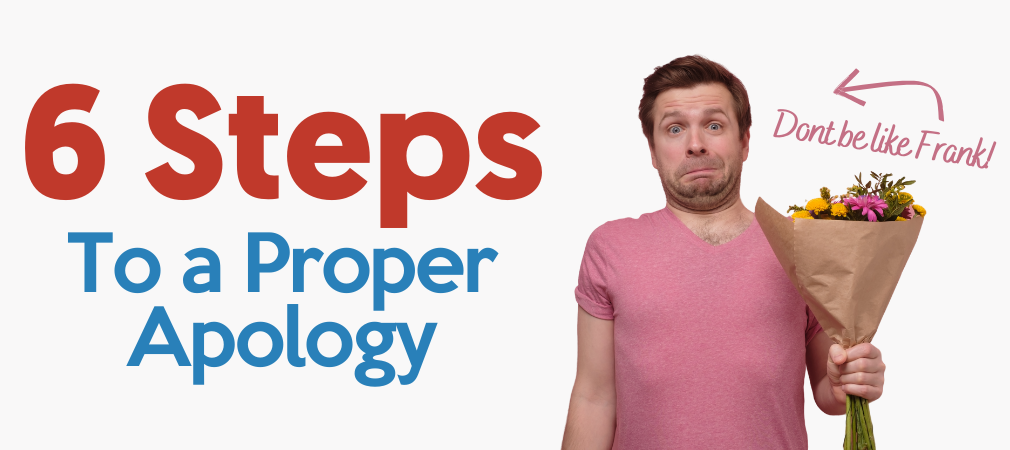Do Apologies Really Work?
So how effective is an apology?
It’s undoubtedly a standard part of Canadian culture and something we are expected to do from the time we are little kids right through to our golden years.
But have you ever had someone apologize, yet it didn’t mean that much to you?
I’ll bet you have!
So, let’s take a quick look at a study that will help us to answer this very question.
DeCremer et al. (2010), in the journal Psychological Science, created an ingenious experiment in which study participants were asked to play a trust game.
Each participant was given 10 Euros (it’s a Dutch study) and assigned a partner. The participants were told to give all of their money to their partner, and it would be tripled.
Next, their partner would decide how much to share with them.
What the study participants didn’t realize is that their partners were hand-picked by the researchers, and there is about to be a double-cross in the name of science!
The partners ended up only giving back 5 Euros to the study participants.
Naturally, they felt slighted, which allowed the researchers to test the power of an apology.
For this part of the study, the participants were separated into groups.
One group received a real apology, while the other group imagined receiving an apology.
Both groups of study participants were asked to rate the effectiveness of the apology on a scale of 1 to 7, with 1 representing the low end and 7 representing the high end of effectiveness.
Can you guess which apology was rated as more effective – the real one or the imaged one?
The imagined one did better with a rating of 5.3, while the participants who received an actual apology only rated it a 3.5.

Take-Home Message
As the researchers suspected, we tend to overrate the impact of an apology.
So, does this mean that apologies aren’t worthwhile?
Not at all. It just means that saying “sorry” is just the start of the repair process.
6 Steps To A Proper Apology
More steps are needed for an apology to work, and sincerity in each of these steps is critical.
Lewicki et al. (2016) found that there are six steps to a proper apology.
Sounds like too much work? Nah! It’ll be worth the effort.
You’ll feel better for apologizing, and whoever is receiving your apology will likely be glad that you put in time and effort to make a proper apology.
Below I have listed the six steps to a proper apology, and in brackets, I have included a little bit of sample dialogue that could be used to help execute a proper apology.
For our example, I decided to pick a scenario where a person in a relationship forgot their anniversary.
And make sure you do a particularly good job with steps 3 and 5, as these are the two most valuable components of an apology.
Hopefully, you find it helpful the next time you need to apologize to someone!
The six steps to a proper apology:
- Expression of regret (e.g., “Sorry, I forgot our anniversary”)
- Explanation of what went wrong (e.g., “I’ve been so caught up with work and coaching our son’s team”)
- Acknowledgement of responsibility (e.g., “It’s my fault, I’ll make sure it won’t happen again”)
- Declaration of repentance (e.g., “I feel terrible about it”)
- Offer of repair (e.g., “I promise to make it up to you, we’ll go out tomorrow and celebrate our anniversary”)
- Request for forgiveness (e.g., “Please forgive me, I know it was hurtful to forget your birthday”)
Do your apologies work?
What do you do to apologize?
Join the discussion on Facebook.
